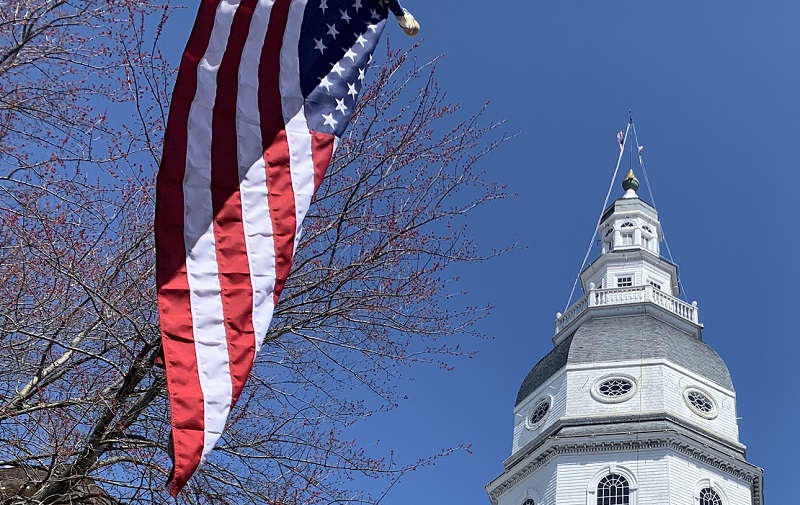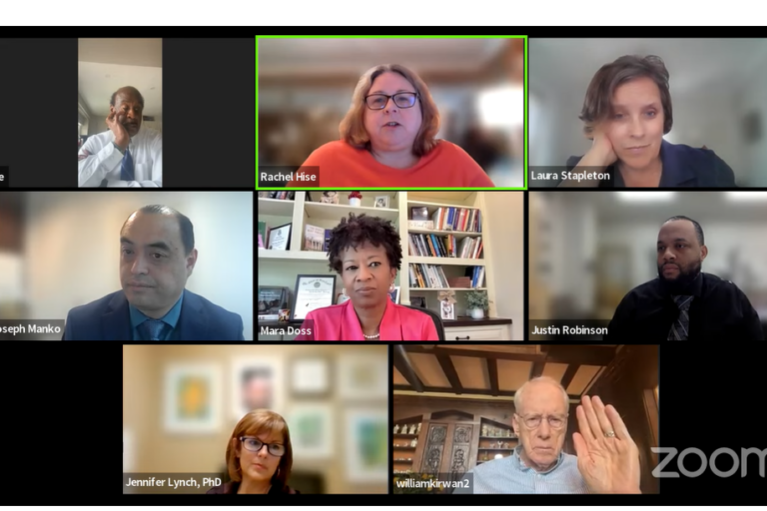Senate Committee Advances ‘Kirwan 2.0’ With Amendments

A Senate committee on Tuesday advanced a complementary bill to the Blueprint for Maryland’s Future, the multi-billion-dollar education reform measure that was enacted into law this year.
“Kirwan 2.0,” or Senate Bill 965/House Bill 1372, is sponsored by the presiding officers of the General Assembly and would adjust the timeline of the Blueprint for Maryland’s Future, as well as address the learning loss that occurred during the coronavirus pandemic.
The House approved the proposal in a 93-36 vote on Monday, and the Senate Education, Health and Environmental Affairs committee adopted House amendments and tacked on its own on Tuesday.
“The focus of the bill is on getting [students] up to grade level…who got crushed during the last 14 months,” said Education, Health and Environmental Affairs Chairman Paul G. Pinsky (D-Prince George’s).
Although the original Blueprint plan included supplemental instruction for students falling behind in grades 3 and below, the Kirwan 2.0 bill extends tutoring programs to students in grades 4 through 12 in response to the learning loss caused by the pandemic. “This bill is a stopgap,” Pinsky said.
Last year, Gov. Lawrence J. Hogan Jr. (R) vetoed the sweeping education reform plan, claiming that it was untenable to raises taxes during an economic downturn induced by the coronavirus pandemic in order to fund the Blueprint. But last month, the General Assembly overrode his veto, and it is now enacted into law.
Over the next decade, the Blueprint for Maryland’s Future will expand pre-kindergarten programs and career education for high schoolers, increase pay and career opportunities for teachers and funnel additional support to schools with high concentrations of students from low-income families.
The House amendments include clarifying that the seven-member Accountability and Implementation Board, which is responsible for developing the Blueprint implementation plan, has authority over the Maryland State Department of Education, if they ever come into conflict. Teachers can be offered higher pay, subject to collective bargaining, as an incentive to teach summer school programs under another the House amendment.
“We heard from the superintendents that recruiting teachers for the summer is not going to be so easy,” Pinsky said in a committee voting session Monday. “They’re pretty exhausted and beat up after the past year.”
The Senate Education, Health and Environmental Affairs committee added more amendments to the House version of the bill, mostly strengthening accountability measures.
Pinsky proposed requiring each local school system to send a report to the Accountability and Implementation Board on its tutoring programs to address learning loss, detailing their pupil to tutor ratio, number of tutoring sessions and amount of time per session.
Local school systems will still have the flexibility to choose among various tutoring models, but gathering data on which programs are most effective is important in case expansive tutoring should be necessary again, Pinsky said. His amendment was adopted.
Tutoring can also include science and history subjects for middle and high school students if there is enough funding under Pinsky’s amendments.
Sen. Katie Fry Hester (D-Howard) proposed requiring virtual schools to follow national standards for quality online learning. Local school systems would have to complete a virtual learning self-assessment and report its findings to the accountability board and MSDE. Additionally, MSDE would have to conduct an evaluation on each virtual school and report its findings to the General Assembly by December 2023.
Virtual learning “is not going away, and so there should be some state guardrails on it,” Hester said. Her amendment was adopted
Hester’s other proposal to require MSDE and local schools to adopt a common digital learning platform received some pushback. Currently, local schools are using many different learning management systems, but a common platform could allow students from any county to access courses that might not be available in their county, Hester said.
Pinsky contended that deeper discussions on virtual learning was necessary before trying to “institutionalize” it. Sen. Mary L. Washington (D-Baltimore City) said virtual learning policies need to incorporate how to train teachers to use these platforms and additional funding for training.
But with more money coming down from the federal government, school systems need more guidance on how to to create virtual schools, Hester said. Although she wants to see students back in school, “we can’t roll back the clock and pretend digital learning isn’t going to happen,” Hester said.
Hester’s proposal failed.
Sen. Mary Beth Carozza (R-Lower Shore) proposed having the higher incentive pay for teachers be contingent on whether they teach in-person, if public health metrics are appropriate.
But Washington argued that there are different ways to provide instruction and this would force school systems to justify virtual components of its summer school program and act as a “barrier.” Carozza’s amendment failed.
Overall, the Senate committee passed the measure in a 10-1 vote, with Carozza opposing it. The Senate Budget and Taxation committee will vote on the measure Wednesday evening before it can hit the Senate floor.




 Creative Commons Attribution
Creative Commons Attribution